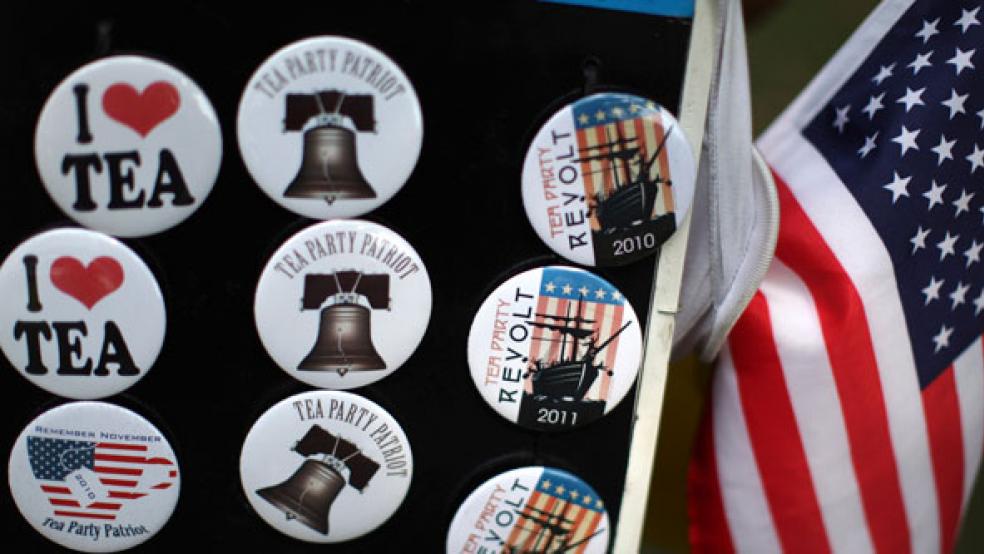That the IRS would target right-leaning organizations is appalling, but not shocking. The scandalous effort to deny GOP Super-PACS tax-exempt status is part of a broader crusade. Simply put: Democrats want to shut down pro-business Republican messaging.

Why? Because the emergence of Super-PACs allows corporations to compete more effectively with unions, which have historically influenced elections through donations, but also by mobilizing hundreds of thousands of volunteers to ring doorbells and man phone banks. Threatened with a loss of influence, Big Labor supporters and their Democrat colleagues are working overtime to stifle these potent GOP voices – and not just through the IRS.
Democrats are trying to neuter the Supreme Court’s Citizens United decision by demanding broader disclosure of political contributions from corporations. They’re betting companies would think twice before making public gifts to interest groups, fearing that the Internet makes it easy for opponents to instigate boycotts or other protests. Retailer Target became the poster child for this tactic when they donated money to a pro-business but anti-gay candidate for governor in their home state of Minnesota. The contribution fueled protests and boycotts, and led ultimately to an apology from the chastened CEO.
Democrats are fighting this battle on numerous fronts –with legislation, through petitioning the SEC for a new rule and also by rallying shareholder groups to demand that companies disclose their political contributions.
In this context, an apparatchik leaning on the IRS to squash the proliferation of right-wing Super-PACs is not so surprising. You have to wonder--what is it exactly that Republicans have to say that Democrats find so frightening? The truth about Obamacare? The outlook for our government’s finances? The deplorable state of public education? Since references to government spending, taxes and American values proved triggers for IRS scrutiny, it’s fair to conclude – all of the above.
Business groups outspend unions in elections by a wide margin. But, an analysis last year from the Wall Street Journal shows union clout roughly four times greater than previously thought when filings on a wider range of political activism are included, narrowing the gap. According to the WSJ, “labor could be a stronger counterweight than commonly realized to “super PACs.”
The irony, of course, is that President Obama himself has recently set up a tax-exempt Super PAC - Organizing for Action - to get his message out. The group has raised over five million dollars to push the president’s agenda, even though Mr. Obama can reliably depend on The New York Times, the Washington Post and the major TV networks to spread the word.
Labor groups across the country are also adopting the Super PAC model. New Jersey’s largest teachers union has a new group called Garden State Forward. The monies collected will help the union battle Governor Christie’s reelection. In 2011, the union spent $10.8 million running an ad called "Millionaires for Christie," denouncing the governor’s attempts to rein in teacher benefits.
It is also ironic that after all the alarums about how the new fund-raising groups would end our political process as we knew it, Democrats out-spent Republicans in the last election. President Obama was so upset about the Citizens United decision that he pushed for a constitutional amendment limiting corporate donations, saying “they fundamentally threaten to overwhelm the political process over the long run and drown out the voices of ordinary citizens.”
Outlays by Super Pacs amounted to $609 million in 2012, according to Open Secrets, with $261 million spent on behalf of Democrats and $347 million for Republicans. And yet, the Obama campaign ended up raising and spending $1.1 billion more than the GOP, which spent $990 million, in the last election.
That, however, did not diminish efforts to muzzle the Super PACs. After attempts to pass legislation failed in 2010 and 2012, Oregon Senator Ron Wyden and Alaska’s Republican Lisa Murkowski recently unveiled the “Follow the Money” bill aimed at transparency. Murkowski, who in the past has voted against such legislation, saw the light when she was knocked out in her last primary by a Tea Party group funded largely by Super PACs. (She won reelection as a write-in candidate.) So far, Murkowski is the only GOP member of the Senate to sign on, suggesting the bill is likely to go nowhere.
Separately, busy Democrats and labor groups are pushing the SEC to require that companies disclose all political contributions. The left has flooded the agency with a record number of comments on the proposal, which is opposed by business groups such as the Business Roundtable. The SEC has not indicated whether it will initiate the controversial measure.
While awaiting an SEC move, proponents of disclosure are rallying investor groups to press their case. In New York, Comptroller Thomas DiNapoli has used the state’s pension investments to browbeat companies into revealing political contributions. Last month DiNapoli added five more Fortune 500 companies, among them Southwest Airlines, and Plum Creek Timber Company, to the list of those agreeing to release the information.
Democrats are determined to squash corporate spending. They protest that Super PACs allow unsavory anonymous campaigning. In reality, they don’t like what the business community has to say: that pandering to organized labor threatens our ability to compete and undermines the fiscal integrity of our cities and states, that Obamacare has restrained hiring and that our workers are not graduating from our public schools prepared to work.
Democrats should be worried that voters might just pay attention.



